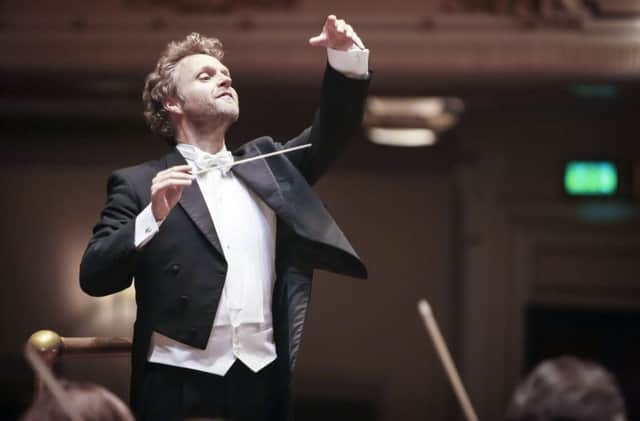Arts preview of 2018: David Kettle on the year ahead in classical music


Hard numbers aside, change is nevertheless on its way at the top of two Scottish orchestras. At the RSNO, it’s goodbye to music director Peter Oundjian, who departs in June with what probably counts as both a bang and a whimper – Mahler’s valedictory Ninth Symphony. He will be replaced by Thomas Søndergård, who will become the second Danish Thomas at the helm of a Scottish orchestra (the other is Thomas Dausgaard at he BBC SSO) when he takes over in September. As the RSNO’s current principal guest conductor, Søndergård is a known quantity – and a much respected and admired one, too, by audiences and RSNO players alike. Details of his first season won’t be announced until March, but judging by his previous programmes (remember his Stravinsky season, his very fine Sibelius, his period-flavoured Beethoven?) it’s likely to be forward-thinking, provocative, and with a strong sense of identity and purpose.
Over at the Scottish Chamber Orchestra, it’s a case of a departure and – well, no arrivals on the horizon. Robin Ticciati gives his final season concert with the SCO in March, conducting Dvořák’s ‘New World’ Symphony. A recent back injury has meant he hasn’t been in front of the orchestra as much as he’d no doubt have liked, but he’s had a big impact on the band nonetheless, his fastidious performances teeming with meaningful detail yet never sounding overworked.
Advertisement
Hide AdThe SCO has said, however, that it won’t be announcing a new principal conductor for the 2018-19 season, which leaves the fascinating (or perhaps slightly scary) prospect of a whole season under guest conductors – or, of course, the SCO’s starry roster of associate artists (including the eminent Emmanuel Krivine and former principal conductor Joseph Swensen). There’s always a worry that an orchestra might go a bit off the boil without a regular artistic leader, but there’s little chance of that with the exemplary shape they’ll have been left in by Ticciati.
Another big project involving the SCO is IMPACT Scotland’s plans for a brand new concert hall behind St Andrew Square in Edinburgh, due to take major steps forward in 2018. Interest was high at the project’s first public consulation in November, and a first public viewing of design concepts is slated for early in the New Year (details to be announced), lodging of planning applications by early summer and – potentially – the start of demolition of the 1960s office block currently occupying the site by the end of the year. It’s looking ever more exciting as the project gets increasingly concrete – and it’s just what the Scottish capital’s music scene desperately needs.
Another key partner in the IMPACT project is the Edinburgh International Festival, which looks set to return to normal (whatever that is) next year following its 70th anniversary bash in 2017. Plans for 2018 are firmly under lock and key until the programme launch in the spring, but it’s almost certain to include the third instalment of the EIF’s four-year Ring cycle, following last year’s roundly adored Die Walküre. While we’re on the subject of summer celebrations, the East Neuk Festival has Jean-Guihen Queyras and Christian Zacharias among early announced performers in what looks to be a strong year.
Back with opera, Scottish Opera kicks off 2018 with two very contrasting contemporary works – Mark-Anthony Turnage’s in-yer-face Greek, in an equally in-yer-face production of maggots, mayonnaise and gaudy 80s get-ups from director Joe Hill-Gibbins; and Jonathan Dove’s delightful airport comedy-with-a-heart Flight, whose immediate music seems to channel Adams, Britten, Bernstein and more but still create its own distinctive identity.
But we have to wait until July for Scottish Opera’s most ambitious project: a massive-scale, community-driven Pagliacci in Paisley, drawing on a cast of 200 (including amateurs, professionals and circus performers) and staged in a huge tent. It’s just the kind of thing to encourage novices to take their first step into opera, or even to become part of the action – and under eminently experienced director Bill Bankes-Jones, it’s a safe bet that it will.
So, big changes in conductors; the completion of a major new venue for the capital drawing closer; and new possibilities for getting involved in opera. There will doubtless be downs among the ups, but 2018 looks set to show that for Scotland’s classical music scene, change can be a very good thing.